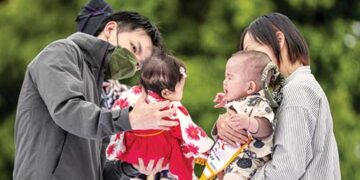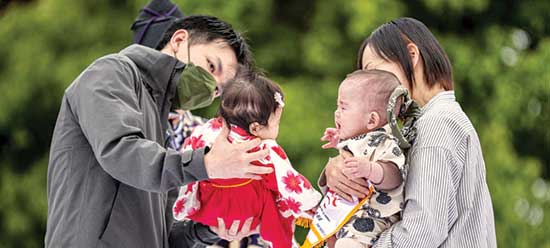Team Blitz India
JAPAN’S birth rate fell to a new low for the eighth straight year in 2023, according to Health Ministry data. Describing the situation as critical, a government official urged the authorities to do everything they can to reverse the trend.
Japan’s long-standing issues of a rapidly ageing and shrinking population has serious implications for the country’s economy and national security – especially against the backdrop of China’s increasingly assertive presence in the region.
Fertility rate
According to the latest statistics, Japan’s fertility rate – the average number of babies a woman is expected to have in her lifetime – stood at 1.2 last year. The 727,277 babies born in Japan in 2023 were down 5.6 percent from the previous year, the ministry said – the lowest since Japan started compiling the statistics in 1899. The number of marriages fell by 6 per cent to 474,717 last year, a key reason for the declining birth rate.
In the predominantly traditional Japanese society, out-of-wedlock births are rare as people prize family values. Chief Cabinet Secretary Hayashi Yoshimasa told reporters that it’s “a critical situation.” The next six years, until 2030, will be “the last chance for us to possibly reverse the trend,” he said.
Hayashi noted economic instability, difficulties in balancing work and childrearing, and other complex factors as main reasons why young people have a hard time deciding to get married or raise children.
Financial support
Japan’s parliament has approved a revision to laws designed to beef up financial support for childrearing parents or those expecting babies, as well as to widen access to childcare services and expand parental leave benefits. The government earmarked 5.3 trillion yen ($34 billion) as part of the 2024 budget for this, and is expected to spend 3.6 trillion yen ($23 billion) in tax money annually over the next three years.

































